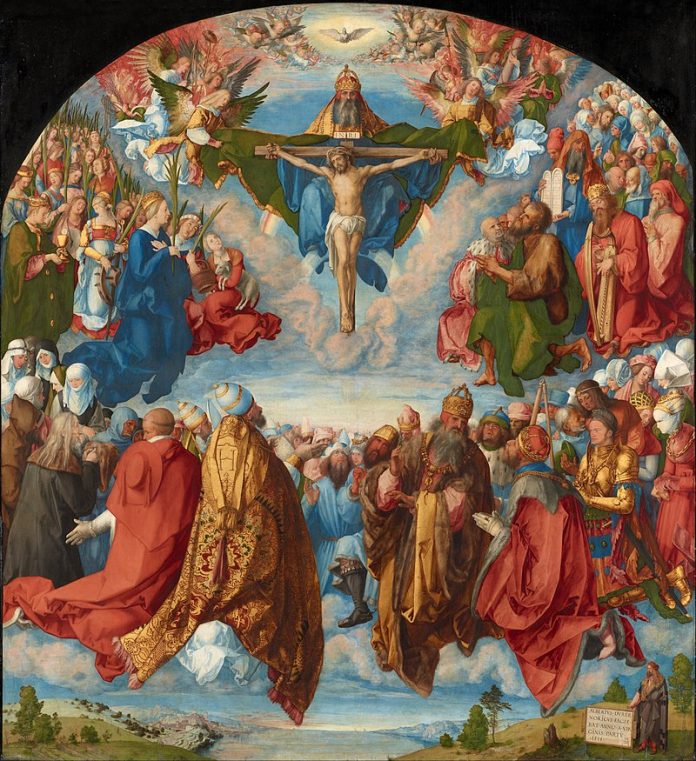
Today’s Gospel contains an intriguing statement: “No one knows the Son except the Father; and no one knows the Father except the Son, and anyone to whom the Son chooses to reveal him.”[1] What can we conclude? Simply that there is more than one way of knowing, i.e., there is a path to knowledge different from the usual ones.
Normally, we come to know things only gradually, slowly and painfully achieving mastery of the subject, whatever it may be. Consider language. How difficult it is to learn a second one — all those idioms! How could you explain to someone who does not know English expressions such as “It’s time to hit the road” or “He’s three sheets to the wind” or “I had to eat crow.” And speaking of “crows,” I knew a well-educated woman who didn’t know what a crow’s nest was. When I told my brilliant godson this story, he was puzzled. “Well,” he said, “what is a crow’s nest if it isn’t a nest for crows?” You see, we don’t know even our own language. Reflect, too, how slowly and with what Herculean labour science has achieved its successes. Or take music. The great soprano Joan Sutherland once said that her singing was ten percent talent and ninety percent hard work.
Nevertheless, the is another route to knowledge—in a sudden flash of insight such as that by which a Mozart conceives an entire symphony at a glance, as it were. We are told that he could compose one in his mind and then, later, sit down and write out the full score. I think that it was present to him in germ that he knew he could expand into the finished work. Writers must have a similar imaginative process. Charles Dickens would have had a total vision of, say, David Copperfield, needing only pen and paper to write out it in full. I once had a like experience, during an examination in mathematics. I looked at a question and saw at once that I could solve it. But like Mozart and Dickens I had to work it out, to realize in fact what I had intuited. A better example would be romantic love, which is at once total and inchoate. One author has expressed its initial thrill thus: “Love is fusion in the sun’s core. Love is a blurring of pronouns. Love is subject and object. The difference between its presence and its absence is the difference between life and death.”[2]
Such is the experience Jesus is talking about in today’s Gospel, but there is a difference; in this case the flash of insight comes from God. Consider Peter at Caesarea Philippi: “Thou are the Christ, the Son of God.” Jesus replied, “Blessed are thou Simon bar Jona; for flesh and blood has not revealed this to you, but my Father in heaven.” But, as in the cases mentioned above, this insight has implications that were worked out over time—in our creeds, for instance—even though they were all implicit in the original statement, as a full-blown rose is already present in the bud.
Saint Paul’s blinding insight came when he encountered the risen Christ before the gates of Damascus: “I live, now not I,” he cried, “but Christ lives in me.” He came to look on mankind in a new way, for to live in the Spirit is not only to be fully human—physically, emotionally, intellectually— but, at the same time, to be directed by the Holy Spirit to a supernatural end, viz., the beatific vision. It follows that to live “according to the flesh” is to refuse that supernatural vision that comes to us from faith. Paul developed the contents of that initial revelation across a lifetime of serving God, the Gospel and his converts as evinced by what he called his “anxiety for all the churches”: “Who is weak and I am not weak? Who is made to fall and I am not indignant?”[3]
We, too, are called upon to develop the religious view of reality instilled in us when we were baptized into Christ. What a challenge! What a privilege! What a joy!
[1] Matt 11.27.
[2] David Mitchell, The Bone Clocks (New York: Random House, 2014), p. 190.
[3] 2 Cor 11.









